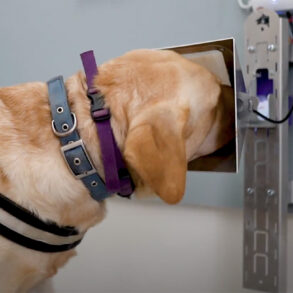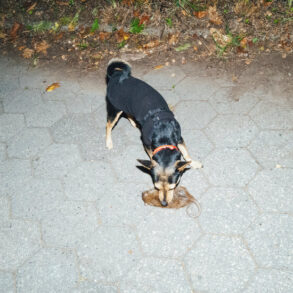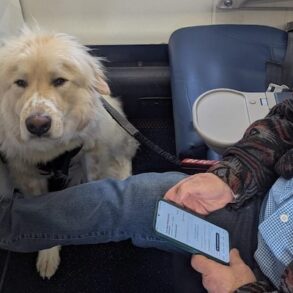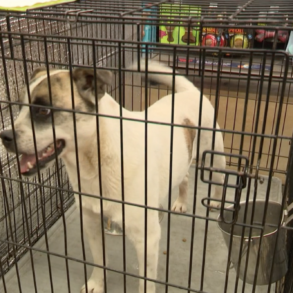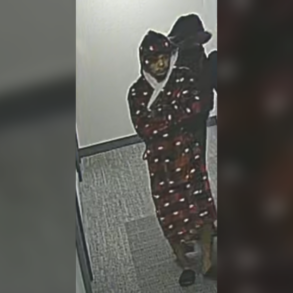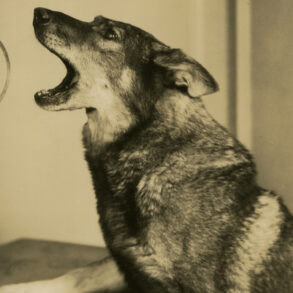
Every so often, news headlines warn of an outbreak of kennel cough. Pet parents are cautioned to keep their dogs away from dog parks, kennels, or daycares. In extreme cases, animal shelters close, and rescue transports are halted.
In July 2024, for example, a severe kennel cough outbreak hit animal shelters in Delaware. Public health officials issued a temporary, one-month lockdown to stop the spread.
The lockdown prevented animal shelters from receiving new animals from out-of-state organizations, adopting animals to non-Delaware families, and transferring animals to partner rescues in other states. State officials acknowledged that the stress on the shelters was “significant.”
Outbreaks like the one in Delaware can prompt many pet owners to ask questions such as: What is kennel cough, and how worried should we be about it?
Read More: Can Dogs Get Sick? How to Keep Your Dog Healthy
What to Know About Kennel Cough
Kennel cough, known in the medical community as canine infectious respiratory disease complex (CIRDC), is a respiratory illness that can be mild for some dogs but fatal for others.
Kennel cough is highly contagious and spreads rapidly in places where animals are in close contact with each other. Shelters, kennels, dog parks, and doggy daycares are all places where an animal can catch kennel cough. However, shelters are of particular concern because the animals living there may be stressed or immunocompromised.
Kennel cough isn’t caused by just one pathogen. “Several different viruses and bacteria can contribute to CIRDC,” says Sandra Faeh, a veterinarian and president of the American Veterinary Medical Association.
These pathogens typically involve the usual suspects like canine distemper, canine influenza, and canine adenovirus type 2. But in recent years, emerging pathogens like canine pneumovirus and respiratory coronavirus have been associated with kennel cough and have shown what researchers call “remarkable resilience” in their ability to infect.
Dogs with CIRDC will develop a cough. “The hallmark sign is a persistent, frequent cough that can sound like a goose honk, retching, or gagging, and may involve froth that looks like vomit,” Faeh says.
Other symptoms like sneezing, lethargy, reduced appetite, and runny eyes or nose are indicators the dog needs to see the veterinarian as soon as possible.
“Early medical attention can often prevent complications and promote a quicker recovery,” Faeh says.
Healthy adult dogs might not become seriously ill if they come in contact with the CIRDC pathogens. However, it can be fatal for puppies, senior dogs, and dogs with a weak immune system or other underlying health issues.
With vulnerable dogs, Faeh says a mild infection can advance to a more severe illness such as pneumonia.
Should Your Dog Be Vaccinated?
“Pet owners should remain vigilant but not overly alarmed,” Faeh says.
A dog’s lifestyle will determine what type of vigilance a pet parent needs to maintain. A dog, for example, who frequents a dog park, will benefit from vaccines that a couch potato may not require.
“Vaccination not only lowers the risk of dogs contracting the illness but also reduces the severity of disease and the likelihood of spreading it to other dogs,” Faeh says. “This is why many facilities and events where multiple dogs gather, such as dog shows, training centers, and boarding facilities, require proof of vaccination.”
Because more than one pathogen can cause kennel cough, Faeh says pet parents should plan on their dog receiving multiple vaccines, which may include canine distemper, canine adenovirus type 2, canine parvovirus, Bordetella bronchiseptica, and canine influenza.
“Your veterinarian can guide you in determining the most appropriate vaccines and vaccination schedule for your dog based on the animal’s age, lifestyle, exposure risk, and other factors,” she says.
Preventing Kennel Cough
In addition to vaccines, there are preventative measures that pet parents can take during known breakouts to limit their dog’s risk.
During outbreaks, for example, Faeh says a dog needs to skip out on their playdates at the park or daycare. People should also avoid boarding their dogs until the breakout passes. And when out for walks, people shouldn’t allow their dogs to come nose-to-nose with unknown dogs. They also shouldn’t be allowed to touch random toys or drink from communal water bowls.
If a person suspects their dog has kennel cough, they should take it seriously, even if their dog seems fine. “Remember, dogs can be contagious and still look perfectly healthy,” Faeh says.
Read More: Dogs Die Too Soon, but a Possible Drug Could Fix That
Article Sources
Our writers at Discovermagazine.com use peer-reviewed studies and high-quality sources for our articles, and our editors review for scientific accuracy and editorial standards. Review the sources used below for this article:
Emilie Lucchesi has written for some of the country’s largest newspapers, including The New York Times, Chicago Tribune and Los Angeles Times. She holds a bachelor’s degree in journalism from the University of Missouri and an MA from DePaul University. She also holds a Ph.D. in communication from the University of Illinois-Chicago with an emphasis on media framing, message construction and stigma communication. Emilie has authored three nonfiction books. Her third, A Light in the Dark: Surviving More Than Ted Bundy, releases October 3, 2023, from Chicago Review Press and is co-authored with survivor Kathy Kleiner Rubin.
This post was originally published on this site be sure to check out more of their content.










